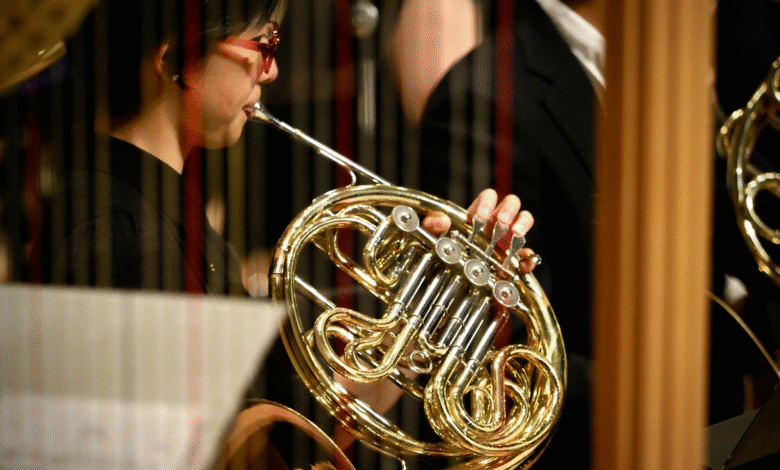A Beginner’s Guide to Choosing Your First French Horn

Choosing your first French horn can feel overwhelming at first. With so many designs, sizes, and styles, it’s easy to get confused. But you don’t need to know everything right away.
What matters most is understanding the basics and knowing what suits your needs. This guide will help you with key points to consider before making a decision.
Ready to get started?
Let’s dive into the important things you should know about picking your first French horn.
Understand What a French Horn Is
The French horn is a brass instrument known for its warm, rich tone. It has a long, coiled tube and a wide bell that faces backward. It’s commonly used in orchestras, bands, and chamber music.
While it looks complex, it becomes easier to handle once you know the basics. Beginners often feel intimidated by its many valves and slides.
However, understanding how sound is produced by buzzing into the mouthpiece makes things clearer. This instrument relies heavily on precise lip control. Knowing this will help you decide if you’re ready to learn it.
Check the Weight and Size
French horns can be heavy, especially for younger players. A smaller or single horn is usually easier to manage. If the instrument feels too bulky or tiring, it can affect how much you enjoy learning.
Balance and weight matter a lot when holding the horn for long periods. Your arm and hand strength also come into play. Make sure you feel comfortable holding the horn before buying.
It should rest easily in your left hand. Comfort will help with better posture and playing form.
Look at the Valve Configuration
French horns use rotary valves to change pitch. Some have three valves, while others have four. Beginners usually start with a three-valve horn. The valve action should feel smooth and easy to press.
If they feel stiff or slow, playing will be more difficult. Check how easily your fingers can move over the valves. Make sure the spacing suits your hand size. Good valve action makes learning more enjoyable.
Know the Types of French Horns
There are a few different types of French horns. The most common ones are single, double, and compensating horns. A single horn is lighter and easier for beginners.
A double horn has extra tubing and offers more note range. Compensating horns are a mix between the two. Each type feels different in your hands and plays differently.
Try to test or hold one if you get the chance. This gives you a better idea of what might work best for you.
Test the Mouthpiece Fit
The mouthpiece is a key part of how the horn plays. It should fit your lips comfortably. Beginners should use a medium-depth mouthpiece to start. It helps with better airflow and tone production.
Don’t choose one that’s too deep or too shallow. Try a few if possible to see what feels right. A proper fit makes it easier to learn the correct embouchure. Getting this part right sets a solid foundation.
Think About the Material
French horns are made of brass, but finishes can differ. Yellow brass, gold brass, and nickel silver are common. Each has a slightly different tone and durability.
Gold brass tends to be warmer, while nickel silver is more resistant to wear. As a beginner, durability might matter more than tone color.
Pick one that feels sturdy and suits your budget. You don’t need the fanciest material — just something that will last and support your progress.
Decide on a Fixed or Detachable Bell
Some horns come with a fixed bell, while others have a detachable one. A fixed bell is solid and has fewer parts to manage. A detachable bell makes the horn easier to transport. For students who travel often, the detachable option might be helpful.
If storage and space matter, this is something to think about. However, detachable bells can be more expensive. Make your choice based on how and where you’ll use the horn. Either option can work well for a beginner.
Check the Finish and Appearance
While looks aren’t the most important thing, you’ll want a horn that looks well-made. A smooth, even finish shows care in the manufacturing. Dents or rough edges could mean poor handling or build quality.
Choose an instrument that appears clean and properly assembled. This often reflects how well it plays. A polished horn can also motivate you to keep practicing. Feeling proud of your instrument helps you stay consistent.
Set a Realistic Budget
French horns can be expensive, but there are beginner-friendly options. Set a clear budget before you start shopping. Don’t go for the cheapest one you find, as quality matters.
Instead, look for solid value — something well-made but affordable. Consider renting at first if buying feels like a big step. Some stores offer rent-to-own programs. Investing wisely now saves you problems later. A good start leads to a better musical journey.
Try Before You Buy
If possible, always try the horn before you purchase. Feeling the weight, checking the valves, and hearing the tone matters. Buying without testing is a risk, especially for a beginner.
Visit a store or borrow one from a music teacher or school. You’ll get helpful feedback and a better sense of what fits you. Never rush the decision. Take your time to choose the right French Horn instrument. A good fit builds confidence and encourages progress.
Ask for Expert Advice
Don’t be afraid to ask your teacher or a music professional for help. They can suggest what type suits your level and goals. They’ve seen many students start from scratch and know what works.
Their advice can save you time and stress. Even a quick conversation can lead to better decisions. Be honest about your budget and needs. Experts want to help new players enjoy the instrument. Use their insight as part of your research.
Learn to Choose Your First French Horn
Choosing your first French horn is an exciting step in your musical journey. Focus on comfort, ease of play, and sound quality rather than looks or extras. Take your time to learn about the options and make an informed choice.
The right horn can inspire you to practice and grow as a musician. Don’t let the complexity scare you. Keep things simple and clear as you go. With patience and guidance, you’ll find the horn that feels right for you. Your future in music begins with that first confident choice.
We’ve got more info waiting for you on the blog. NewsDipper.co.uk


